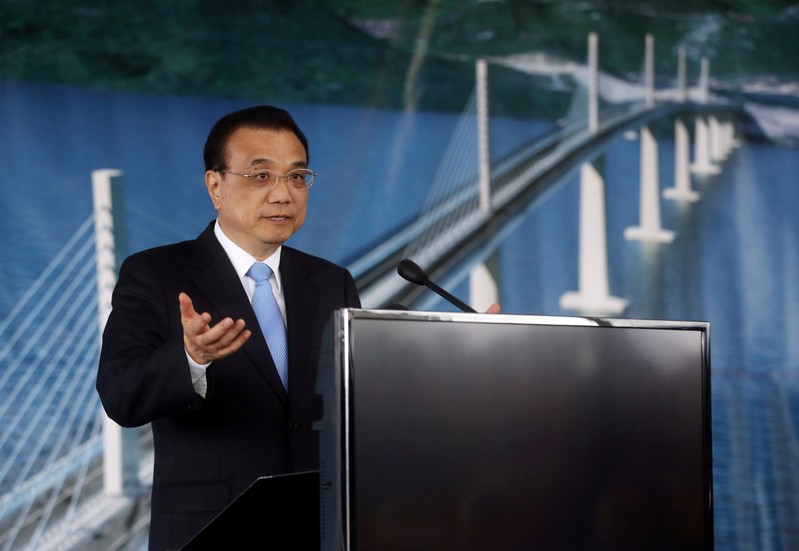
FILE PHOTO: Uber’s logo is displayed on a mobile phone, September 14, 2018. REUTERS/Hannah Mckay/File Photo
April 11, 2019
By Cassandra Garrison
BUENOS AIRES (Reuters) – Taxi drivers took to the streets of Buenos Aires on Thursday to protest against Uber, underscoring the challenges the ride-hailing giant faces in the fast-growing Latin American market as it prepares to file a much-anticipated initial public offering.
Argentina’s powerful taxi unions walked in procession through the center of the capital to begin two days of protests against Uber, which faces competition and regulatory hurdles in a region where it often operates in a legal gray area.
Uber is expected to make its initial public offering registration on Thursday that could see it sell around $10 billion worth of stock, Reuters reported earlier this week, which would make it one of the largest tech IPOs of all time.
The Buenos Aires protest underscores a simmering anger among taxi drivers in the city against the service. Uber drivers are able to undercut on prices, helping steal away consumers hungry for ride-hailing alternatives with competitive fares.
Around Latin America, Uber also faces more rivals, including Chinese ride-hailing giant Didi Chuxing, and faces pressure to cut driver subsidies to bolster profits.
“I see the biggest threats outside of competition being from regulation and a potential backlash against Uber as payouts to drivers continue to fall,” said Nathan Lustig, managing partner of Magma Partners, a Latin America-based venture capital fund.
Argentina’s capital city lacks a specific regulatory framework for Uber, but the firm maintains it obeys the country’s laws and pays taxes, and wants cities to pass ride-hailing regulations.
In neighboring Chile, Uber faces similar issues, with drivers often looking to avoid detection.
Other Latin American markets, including Mexico City in Mexico, Rio de Janeiro and San Pablo in Brazil, and La Paz in Bolivia, have adopted specific regulations that enable the use of apps for transporting passengers, giving the green light to Uber, the firm said.
NOT LEGAL, NOT ILLEGAL
Lawmakers in Buenos Aires have largely sided with domestic taxi drivers, who say Uber fosters unfair competition as its prices are lower than those of city cabs.
To counter this, the city government has levied fines on Uber drivers and introduced obstacles, including an injunction by a judge that instructed some credit cards issued in Argentina not to process Uber transactions in Buenos Aires.
Still, Argentina has been the fastest-growing market in the world for Uber since it started operating there in 2016, despite the country’s economic turmoil, according to company data reviewed by Reuters.
That success has angered the city’s taxi unions, who claim demand for taxis has been cut in half since Uber’s arrival.
“Uber operates in an arrogant and illegal manner. In these three years, we have seen our work and our business shrink,” Cametax, an organization representing taxi companies, said on its Facebook page.
Uber said in a statement to Reuters it supported regulations that expand the benefits of its technology.
“The response and the choice of the people is clear,” the firm said.
Uber drivers have been the target of violent attacks by so-called “caza Ubers” or “Uber hunters.” It is common in Buenos Aires for Uber drivers to ask passengers to sit in the front seat to avoid drawing attention from local taxi drivers.
On Wednesday, an Uber passenger was killed in a traffic accident in greater Buenos Aires. The company said in a statement it had activated its accident insurance protocols, which are available to all rides requested through its app.
(Reporting by Cassandra Garrison; Editing by Adam Jourdan and Bernadette Baum)

